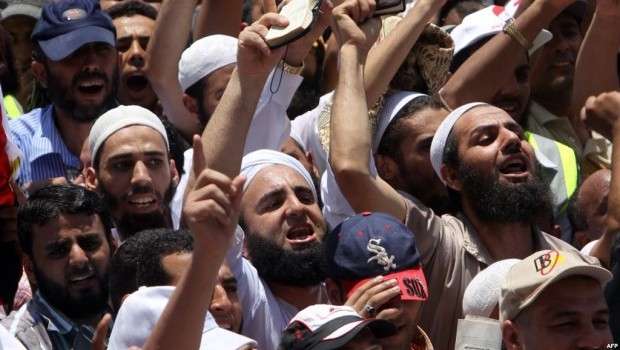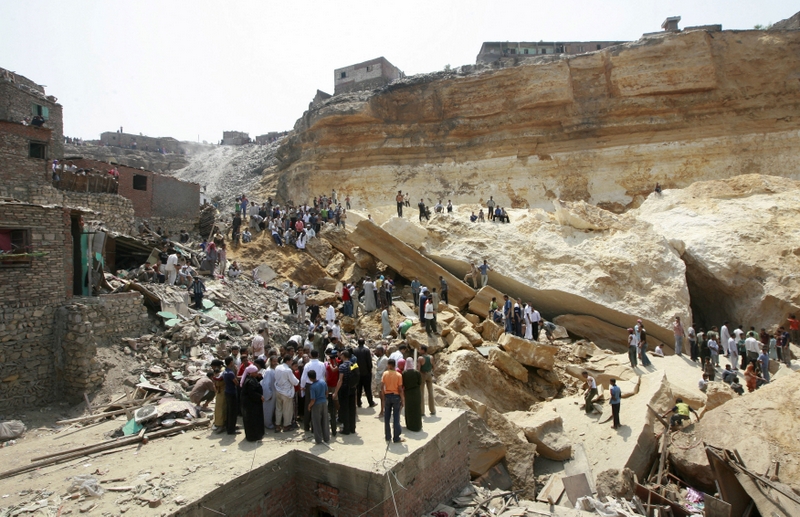CAIRO: Even before Israel had announced its ceasefire in Gaza on Saturday night, which took effect at 2 am local time Sunday, Egypt had already called for a conference on Gaza to take place in Sharm El-Sheikh.
And on Sunday European and other world leaders headed to the Red Sea resort to show support for the end of the fighting as well as to push for the next steps in reaching an agreement between the two sides.
Present at the summit were the leaders of France, Germany, Great Britain, Turkey, Italy, Jordan, Spain, The Czech Republic, the Palestinian Authority, the Arab League and the United Nations. The European leaders headed to Israel after the summit ended.
All present indicated their support for the ceasefire, and stipulated that the smuggling into the Gaza strip must stop, as well as opening the crossings to end an 18-month blockade.
At the leaders’ press conference after the summit, Arab League Secretary General Amr Moussa said, “Talk of ending the smuggling must not exclude talk of opening the crossings, because the smuggling is a direct result of the blockade. People are desperate for anything by any way.
Moussa also warned that such events will continue if a viable peace process was not introduced in place of the current stalled one. UN Secretary General Ban Ki-moon also spoke of resuscitating the peace process, stating there was a “failure in that department. He also urged Arab countries specifically to contribute more to the peace process.
Israeli Prime Minister Ehud Olmert had announced an Israeli ceasefire (but not a withdrawal) three hours ahead of time and boasted that the Jewish state had achieved all of its goals with the offensive on Gaza. Israeli officials however continued to stress that it was a fragile ceasefire and things could change at any moment.
Expert of Israeli affairs at Al Ahram Center for Political and Strategic Studies Abdel-Aleem Mohamed told Daily News Egypt, “The consequences of the offensive have been negative for Israel; it has tarnished its image worldwide. Also, it is clear they cannot achieve their goals at this time and they cannot stay in Gaza in the long-term.
He added that two of three Israeli leaders who initiated the war were running in February’s elections and thus could not risk continuation of the offensive and the Israeli army did not want to enter urban areas in Gaza.
“The essential aim of this war was to weaken the Palestinians as a whole, Mohamed continued, “whether on the fighting track with Hamas or the diplomatic track with Fatah, making it clear that they will not get what Israel is willing to give them. There is also an element of revenge on Hamas and a desire to regain some confidence for the army after the Lebanon war in 2006.
“Israel knows it cannot stop the rockets, even after the ceasefire rockets are still being fired, he added.
Also on Sunday, Hamas and other groups announced their own ceasefire, to give time for humanitarian assistance in their own words, but gave Israel an ultimatum of one week to completely withdraw from the Gaza strip. Only one group, the Palestinian Popular Front, did not support the ceasefire.
Even though a ceasefire had been announced by both sides, fighting did not completely stop on day 23 of the Israeli offensive on Gaza. At least two people – identified as civilians – were killed by Israeli air strikes and rockets were fired on the southern Israeli town of Sderot.
Yet as the intensity of attacks depreciated, it gave a chance for Gazans to search for bodies beneath the rubble of destroyed buildings. At least 90 bodies were recovered Sunday.
On Saturday, Egyptian Foreign Minister Ahmed Aboul Gheit said that Israel was the main obstacle to Egyptian efforts to secure a ceasefire in Gaza.
Asked by reporters what the main obstacle was, he said “Israeli intransigence, adding: “Israel is drunk with power and violence.
Aboul Gheit made his comments after talks with visiting Czech Foreign Minister Karel Schwarzenberg, whose country currently holds the rotating presidency of the European Union.
They were by far the strongest criticism of Israel that Egypt has made since the launch of Israel’s offensive in Gaza on Dec. 27. -Additional reporting by AFP.


